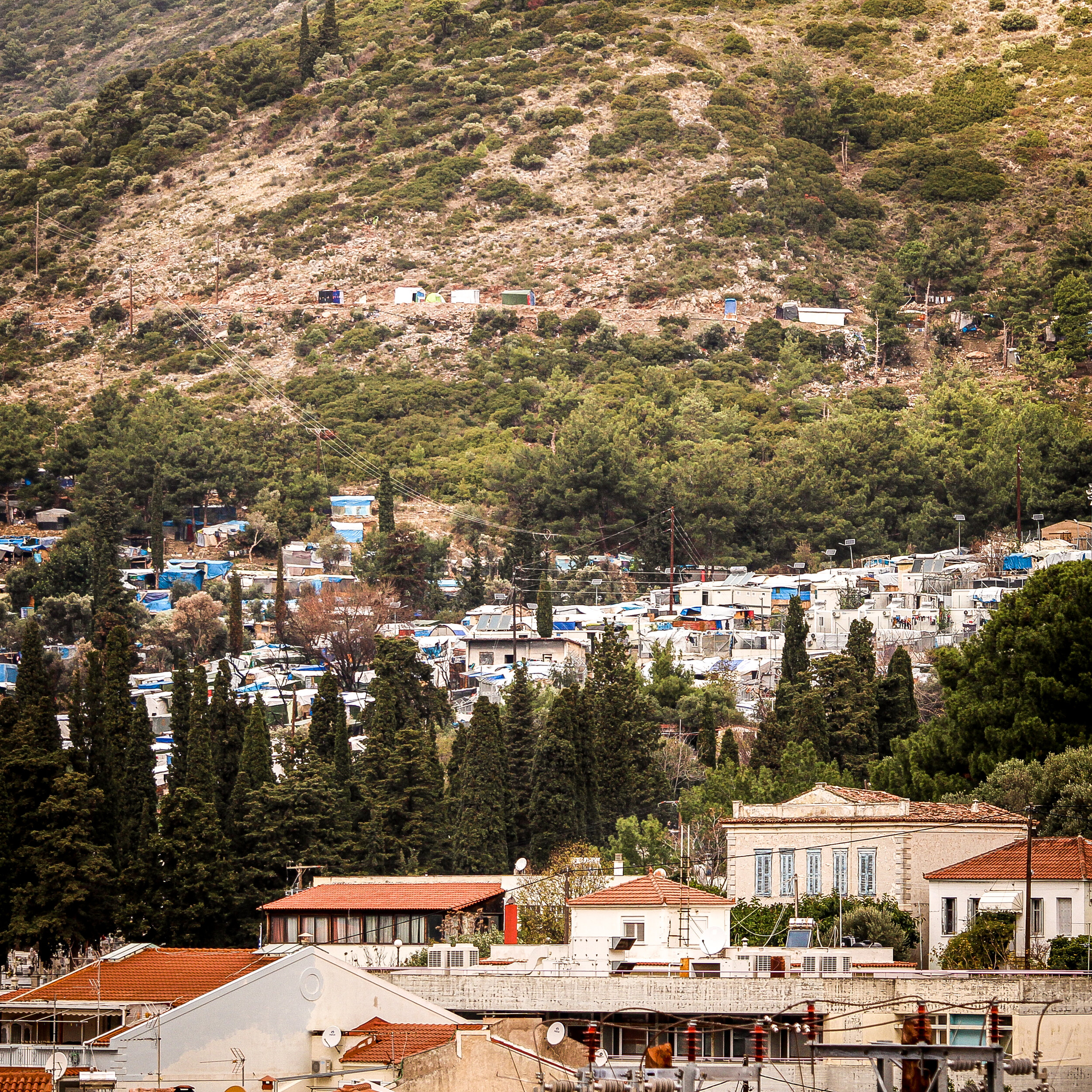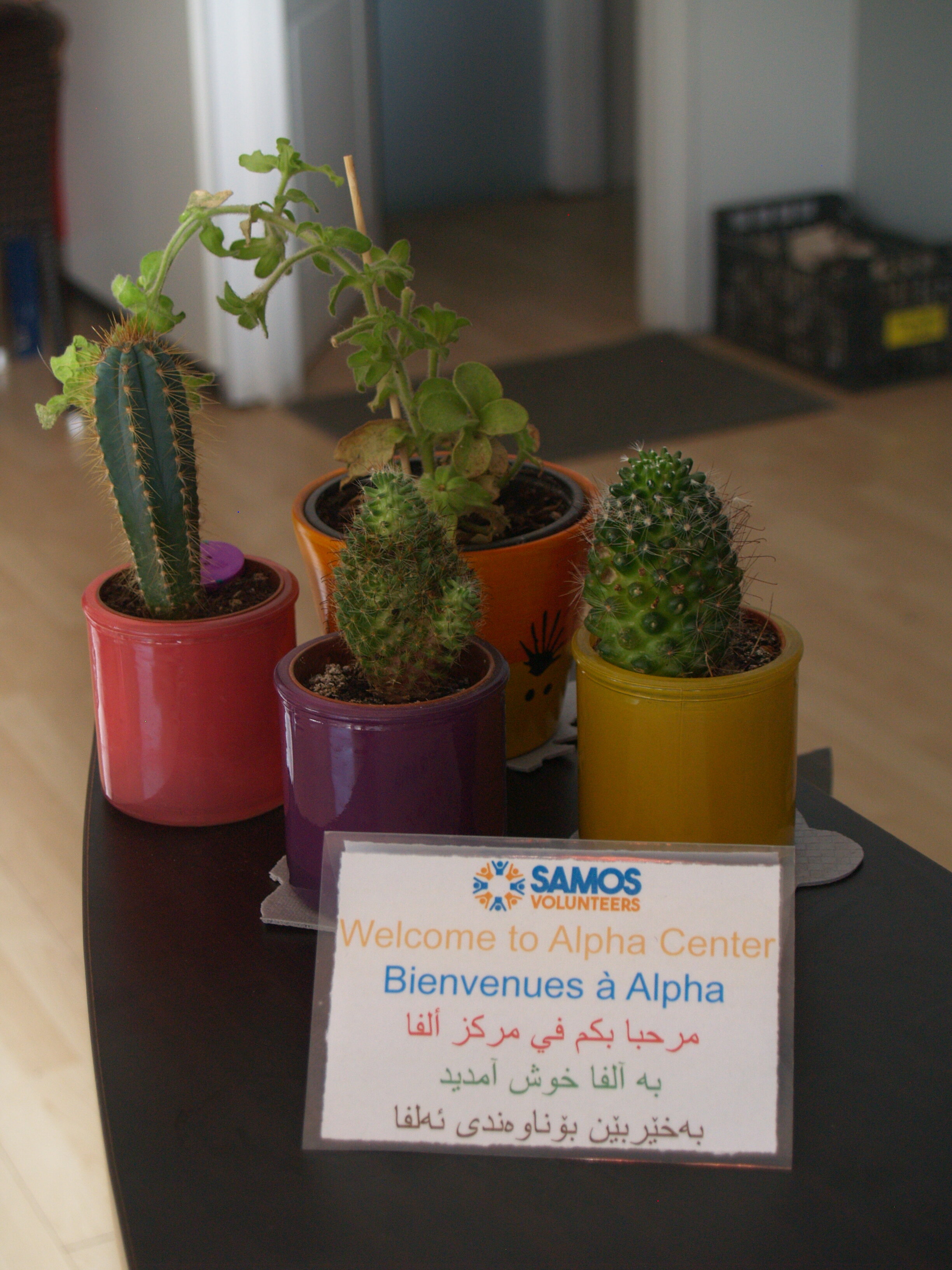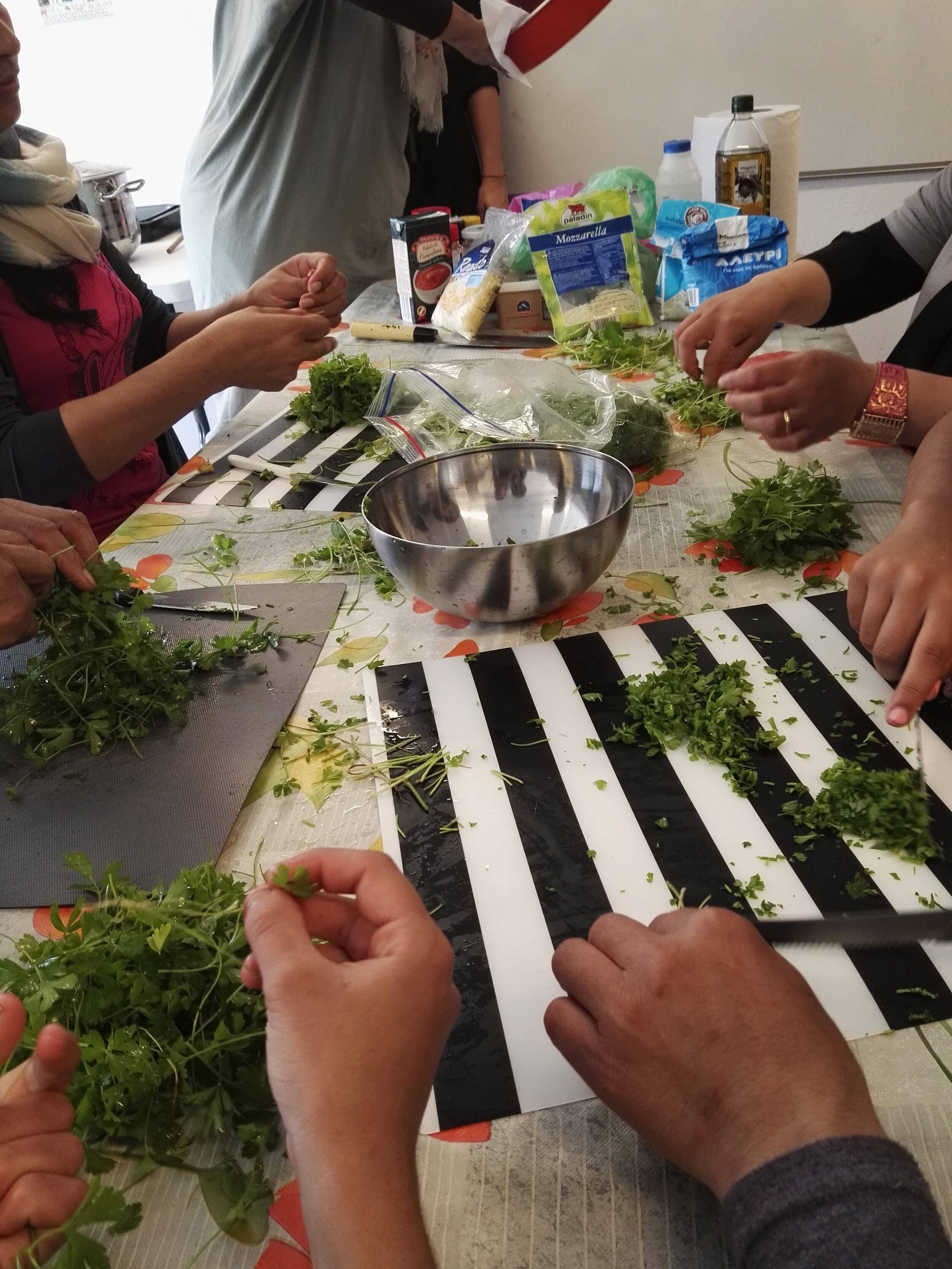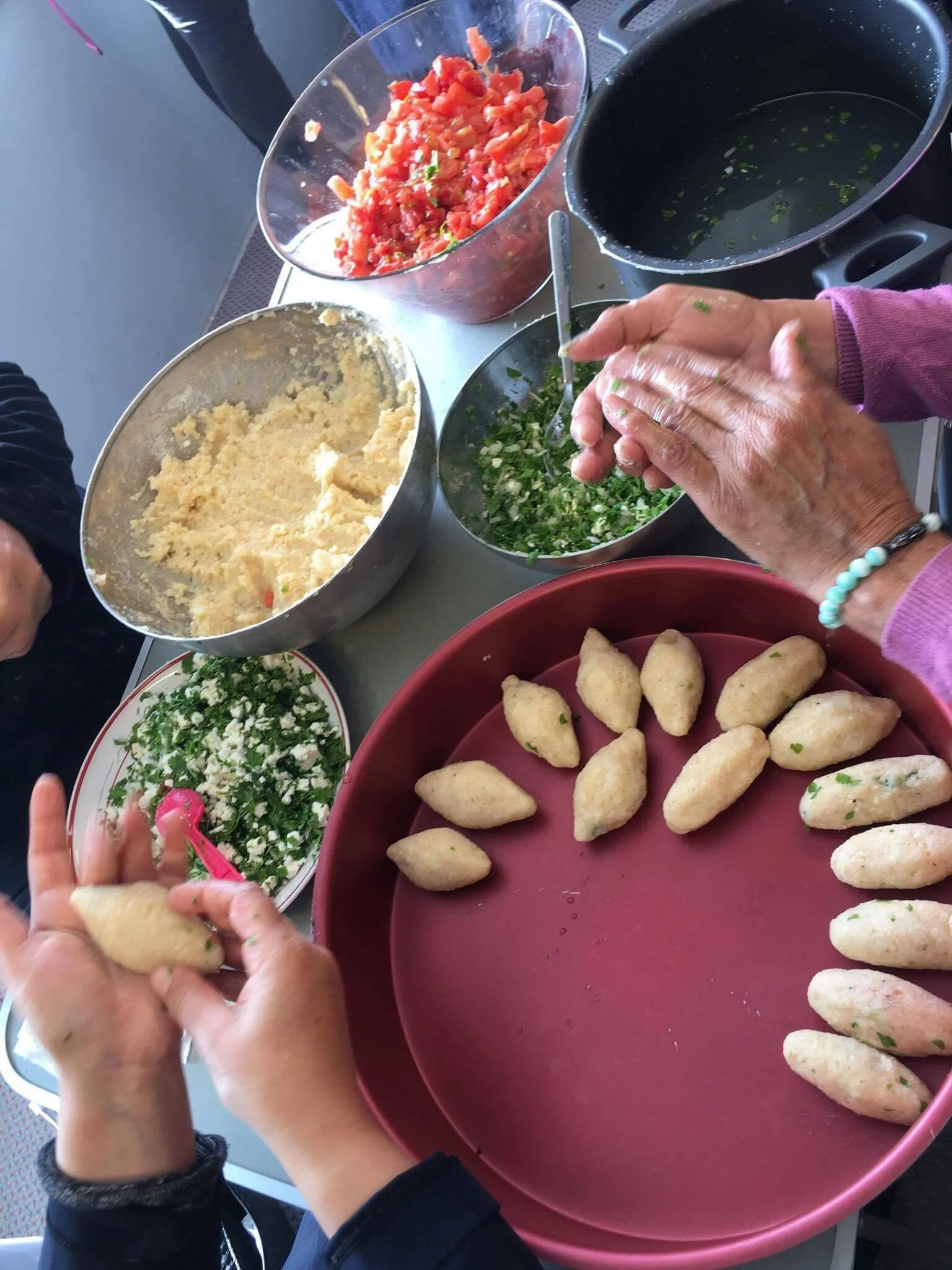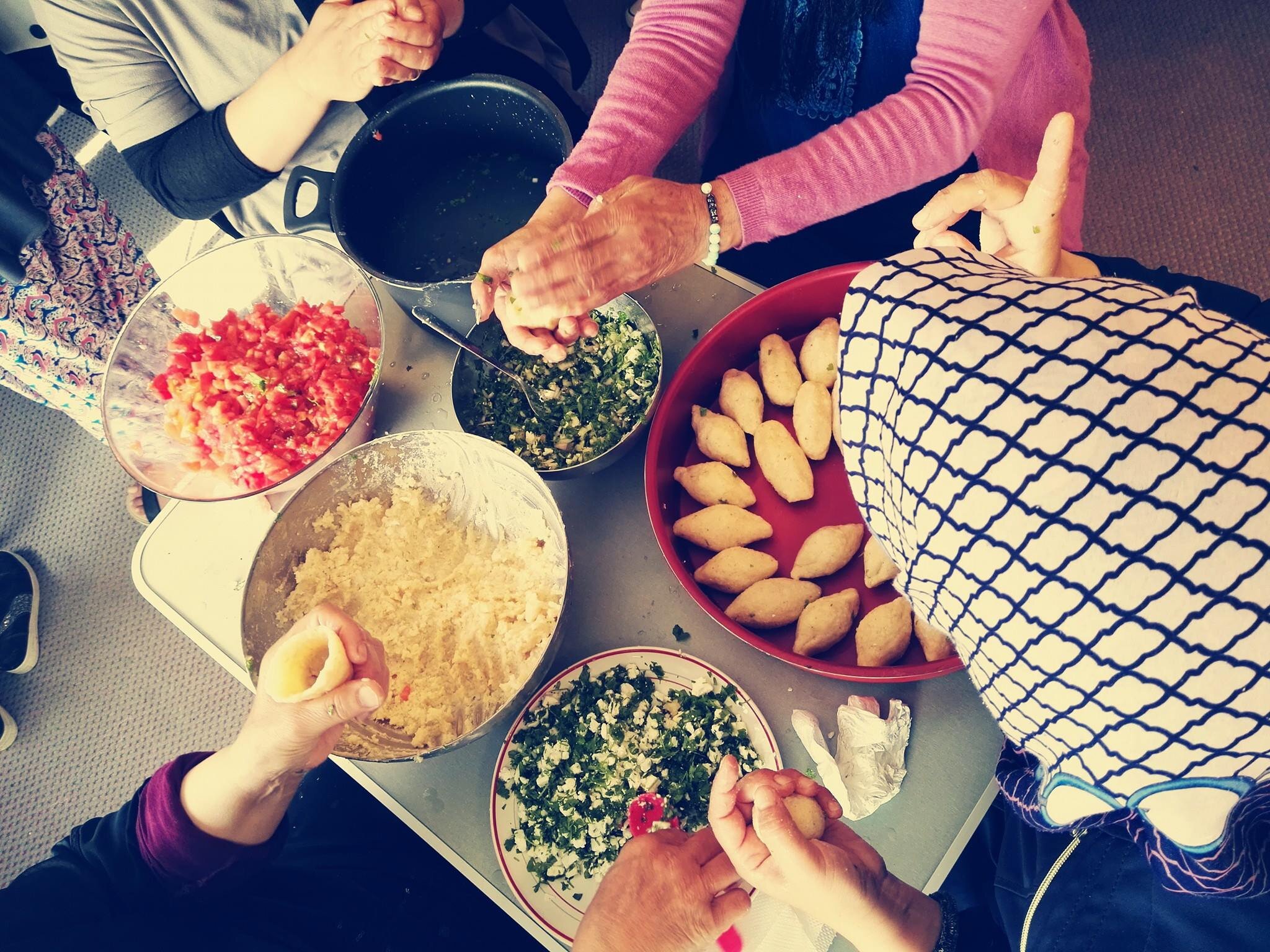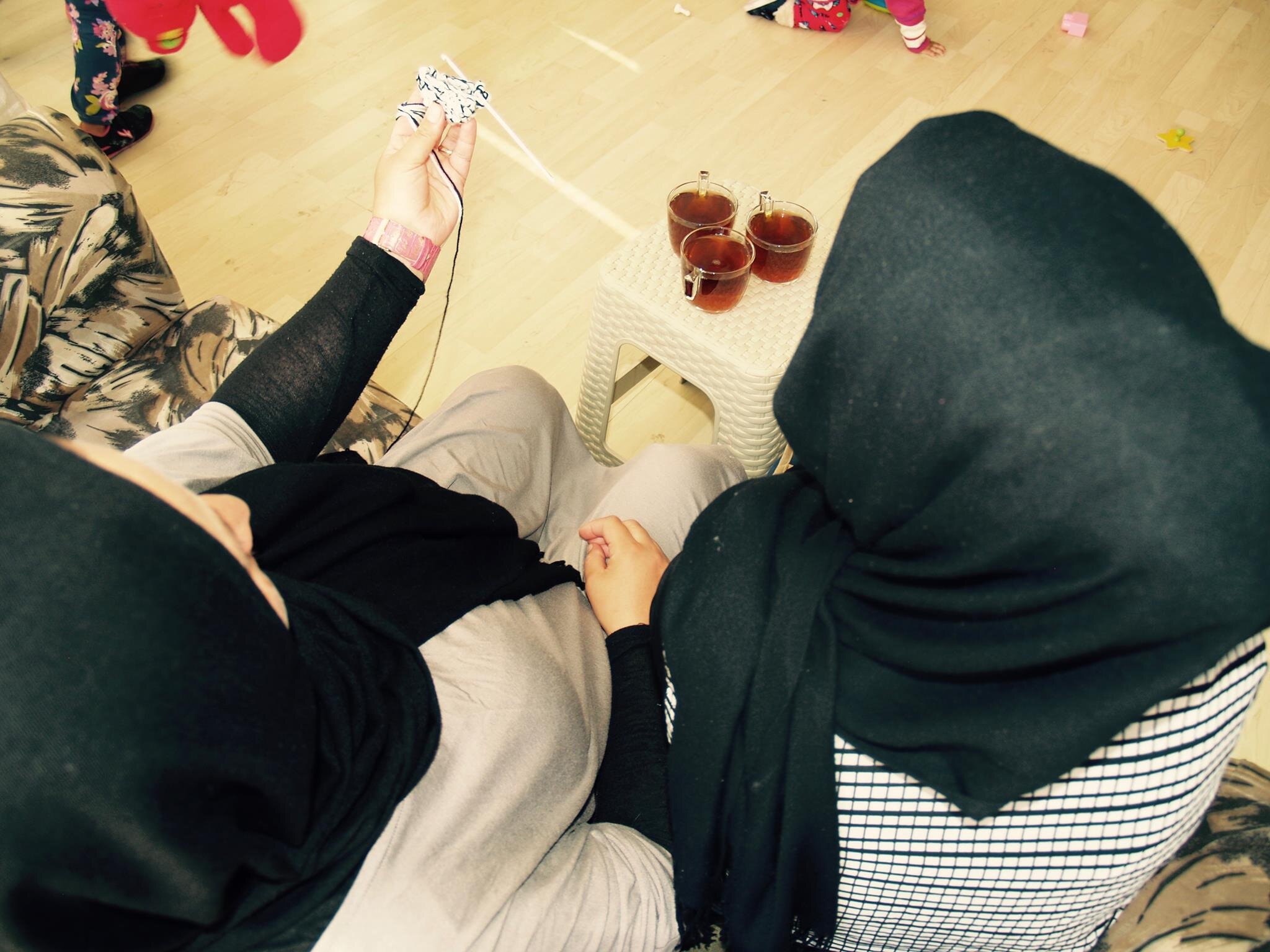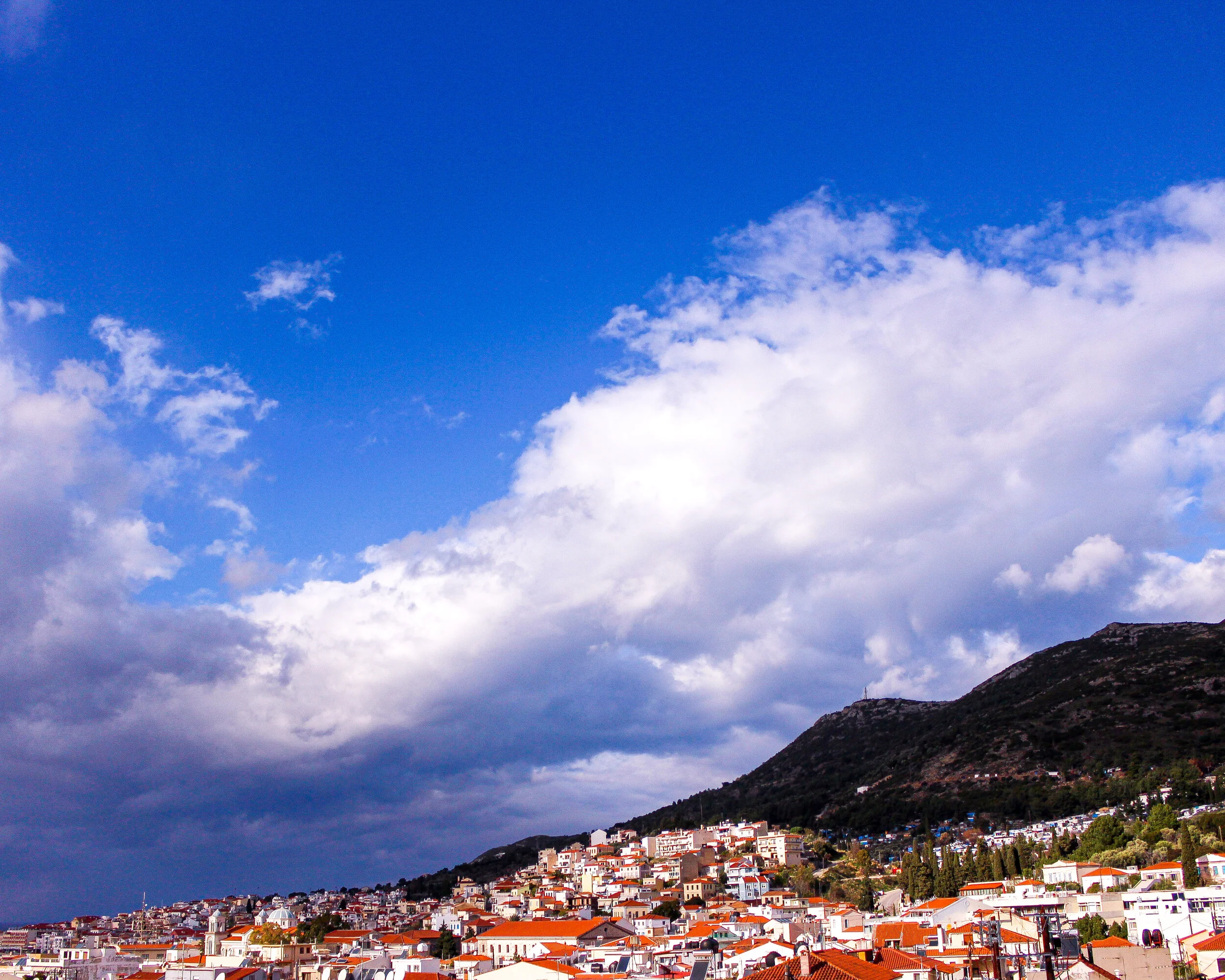Women’s Spaces and LGBTQI+ support groups: Intersectionality in Practice with Samos Volunteers
Theo Jackson - 13 January 2021
This article explores the concept of intersectionality and how it can expand our understanding of the refugee experience, and improve the quality of the support we provide. We also look at what an intersectional approach is like in practice, focussing on the NGO Samos Volunteers.
As the total number of globally displaced persons continues to grow, finding effective, considered and inclusive ways to help refugees and asylum seekers has never been more important. Using the NGO Samos Volunteers as a case study, this article explores how the concept of intersectionality can improve humanitarian efforts to assist displaced persons, and how theory can translate into practise.
Intersectionality and Humanitarianism
The concept of intersectionality - that individuals exist within, and are oppressed by, multiple overlapping hierarchical power structures (such as white supremacy and patriarchy) - has recently taken center stage in discussions of inequality, social justice and progressive politics.
Intersectionality has also become a key concept within the field of humanitarianism. Because much humanitarian work is driven by the directive to assist the “most urgent cases of distress”, the ability to assess how individuals’ needs are structured by various social factors is essential. Intersectional issues, such as the experiences of LGBTQI+ refugees, are now often placed at the forefront of humanitarian discourse and research.
Despite the positive rhetoric, there are many issues with intersectional humanitarianism. Some point out that there is an overwhelming focus on the vulnerabilities of “women and girls” as a homogenous and “perpetually vulnerable group”, failing to appreciate the intersections within this category. Some see intersectionality as a “cool new buzzword” to be used in the pursuit of funding, rather than a serious critical and organisational tool. There is also tension between the inherently critical nature of intersectionality, and the often apolitical stance taken by humanitarian organisations. Because humanitarian work focuses on providing relief in extreme situations, organisations are unable (or unwilling) to engage in the type of critical, deconstructive process that can be truly empowering for marginalised individuals.
Intersectionality and Refugees
With 79.5 million forcibly displaced persons worldwide, forced migration is perhaps the world's most pressing humanitarian issue, and will only intensify as the climate crisis worsens. The majority of global refugees live in refugee camps, where living conditions are terrible and their access to basic human rights such as healthcare, shelter and education is extremely limited. Physical and psychological traumas are rampant, and refugees routinely face degrading treatment from camp officials and immigration staff.
The experience of refugees is strongly linked to racism. On one hand, race related persecution can force people from their homes, and much contemporary conflict has an ethnic dimension. On the other, hostile receptions from other states - the demonization of refugees as invaders and “illegal immigrants” - have their roots in xenophobic and racist structures. As well as racism, refugees occupy a marginalised social position due to a lack of economic, social and cultural capital.
Applying an intersectional lens to the refugee experience shows us that, along with racism, refugees may be further marginalised by patriarchal, heteronormative and ablist systems. Although refugees may appear as a uniformly vulnerable group, it is crucial that we understand how overlapping power structures create important differences in experiences and needs, within an overall vulnerable population.
Women
Female refugees are further marginalised by patriarchal power structures, which are expressed through families, governmental institutions and aid organisations. They face a serious risk of sexual violence, whether in their home country, in transit, or in a host country, as well physical, psychological and economic abuse. Refugee camps are very unsafe environments, where women may have to live in close proximity to their abuser with little support.
To make things worse, refugee survivors of sexual violence find it very difficult to access the necessary medical, legal and psychological support. Some even suppress the trauma for fears that they will be labelled as sexworkers and denied refugee status on moral grounds.
Because of this, refugee women can be forced to rely on men for security. This dynamic can exacerbate the inequalities that already exist within traditional patriarchal structures, and can have a huge impact on women’s ability to access medical, educational or legal services. Women who are unable to access language education due to patriarchal constraints (not being allowed to leave the camp eg) are further disempowered, as they are forced to rely on men for translation help as well as security.
Limited access to Sexual and Reproductive Health (SRH) services is also a huge problem, as untreated issues such as pregnancy complications and STDs can be fatal.
Whilst these problems are shared by all female refugees, the intersections within this group suggest that single, LGBTQI+, disabled or mentally unwell women may experience more severe levels of discrimination and distress.
LGBTQI+ refugees
LGBTQI+ refugees face multiple discriminations due to their sexuality/gender identity. Many LGBTQI+ refugees have experienced persecution and violence in their home countries, and in transit and host countries. A lack of safe housing is especially problematic, as they can be exposed to further abuse and violence in collective shelters and camps. These experiences also cause severe psychological distress, made worse by the lack of support.
Heteronormative structures also work to marginalise LGBTQI+ refugees through the asylum systems which should keep them safe. Only 37 states grant asylum on the grounds of sexuality/gender identity based persecution, and these cases often fail to be accepted; a 2016 report from Stonewall (Stonewall - No Safe Refuge) indicates that more than 95% of asylum applications made in the UK on these grounds are rejected.
As part of this process, LGBTQI+ refugees often face invasive methods to “prove” their sexuality or gender identity. This can involve traumatic experiences such as invasive questioning and privacy violations. These experiences can be extremely distressing, especially for people who have spent the majority of their life suppressing their identity, and require refugees to conform their identities to Western conceptions of sexuality and gender.
Disabilities and Physical Needs
Because refugees generally live in inadequate housing (tents, shelters, poor quality social housing), those with health conditions face significant challenges. Combined with this, refugees have very limited access to medical services, meaning check-ups, medication and emergency services are usually unavailable.
Because of their increased vulnerability, refugees with health conditions may be more susceptible to various forms of exploitation.
Mental Health
Given the traumatic experiences they go through, mental health conditions such as PTSD, depression and anxiety are common amongst refugees, whilst psychological assistance is generally nonexistent. The long delays associated with asylum applications can worsen existing conditions, and cause further psychological distress. Those with preexisting conditions such as bipolar disorder or schizophrenia struggle to access essential support and services.
While it is important to identify specific needs within refugee populations, we should not let this detract from our understanding that all refugees are vulnerable and in need of support. Sexual violence happens to men and boys, access to healthcare is universally limited and human rights to education and shelter are unmet for all refugees. To say that some have additional needs does not take away from this fact.
The Samos Hotspot
Underlying the issues outlined above, is the persistent fact that refugees (in Europe and elsewhere) are forced to live in inhumane and degrading conditions. Samos, a small Greek island in the Aegean Sea, is no exception to this rule. Along with many other Greek islands, Samos is a point of arrival for the hundreds of thousands of refugees who travel through Turkey towards Europe.
Conditions for the 3500 camp members are horrific. Although some food is provided by the UNHCR, people can queue for hours only for the food supplies to have run out. There is no access to basic sanitation, and as a result scabies and bed bugs are commonplace. There is one doctor for the entire camp, and getting an appointment can take months. The camp is covered in litter due to nonexistent waste disposal systems and is infested with rats. When the rains and winds arrive in winter, people have little more shelter than a flimsy tent and a makeshift tarpaulin cover.
Because of the EU’s rigid asylum policies, people can remain on Samos for years waiting for their application to be processed. This, combined with the appalling conditions, takes a huge physical and psychological toll on already vulnerable individuals who are unable to access their basic human rights to shelter, healthcare and education.
Intersectionality in Practice: Samos Volunteers
Samos Volunteers is one of many NGOs working around the camp on Samos. Because of the EU’s political unwillingness to support refugees, the burden of care is placed firmly onto such NGOs, who are only able to function due to donations and volunteers, and the support of those living in the camp.
Alongside their programme of psychosocial support - education, activities, community events, safe spaces - Samos Volunteers also provides a Womens’ Only space and activities, and an LGBTQI+ support group. These initiatives were born out of an intersectional understanding of the refugee experience, and seek to provide additional support to especially vulnerable individuals.
We spoke with Mirjam Oliva, the current Women’s Coordinator and Daniel Chapman, one of the co-founders of the LGBTQI+ support group, to get an insight into their work.
As Women’s Coordinator, Mirjam is in charge of the Women’s Only space, and running the women’s only activities, which include arts and crafts, languages, maths, sports and gardening.
“Our overall approach is to give a safe space to women, where they can relax and have their own comfort zone. They can have the opportunity to learn something new, to increase their independence and to be empowered.” Many of the activities are organised by ‘community volunteers’ - women living in the camp who volunteer with the NGO. To provide the best responses, Mirjam believes “the most important thing is that we try to be as close to the community as possible”.
The LGBTQI+ support group, established by queer volunteers on the island, provides a safe space for LGBTQI+ camp members to meet, talk and get help. Daniel, alongside other volunteers, felt that “there was a lack of appropriate LGBTQI+ sensitive support on the island and that queer voices were not represented in discussions of humanitarian support.”
Because of the additional threats faced by women and LGBTQI+ refugees, both Mirjam and Daniel see these projects as essential in providing effective support to the refugees on Samos. Daniel describes the LGBTQI+ group as “often the only place people feel they can be themselves”, a sentiment which is echoed by Mirjam: “I have seen the women feel free, self-confident and relaxed. They were dancing and behaving in a way they wouldn’t outside of the women’s space”.
Both the women’s space and LGBTQI+ group also act as important pathways for their members to access legal, psychological and health support. For many women and LGBTQI+ refugees, discussing traumatic experiences such as rape or abuse can be very difficult. As Mirjam points out “The women’s only space can be an access point to more help and additional support. This depends on trust between the women and the volunteers, and a women’s space can build that trust.”.
Each of these projects face their own challenges. For the LGBTQI+ support group, the biggest challenge is keeping its members safe. “Because of the risks associated with group members being identified as being LGBTQI+, the group has to operate on an underground basis” says Daniel, highlighting logistical challenges such as finding a secure meeting space. “It is also a problem when it comes to advocacy, as we can’t be as vocal as we would like''.
Mirjam points out that the limited space available to the NGO makes it impossible to ensure that men are never present. “Sometimes men are entering the room when the women are still there, and there are women without hijab or changing their clothes. This is always an issue.”
These projects can also raise issues that are more ethical in nature. As Mirjam describes, “we can sometimes provide activities where I ask myself, is it fair to provide this for women if we can’t also provide it for men? Although she says that single men often ask why they do not get extra support, she also points out that “I never had a conversation where someone questioned the existence of the women’s space - but, why can’t they get more support too”?
In reality, these types of questions are an indictment of the terrible conditions refugees are forced to live in around the world, the limited resources of aid agencies and, crucially, the lack of political will to help refugees. “Because the capacities of the NGO are limited, we have to focus on the most vulnerable groups. This doesn’t mean it is fair, but it is the reality of the situation.“ In an ideal response, the rights and needs of all refugees would be prioritised and addressed fully. As it stands however, NGOs are left with difficult decisions on how to allocate their limited resources, whilst governments stand idly by.
Despite these obstacles, Samos Volunteers are able to provide essential support to particularly vulnerable groups within the larger camp population. By giving safe spaces, empowering activities and trust-worthy pathways to essential services, their Women’s Space and the support they provide to the LGBTQI+ Group are excellent examples of intersectionality in practice.
Whilst the positive impact of this approach is undeniable, the critical foundations of intersectionality demand that we go beyond simply identifying vulnerable groups in an already vulnerable population.
For Samos, this means also highlighting the uncaring and inadequate response of the EU, and its roots in racist norms of white supremacy. It means criticising asylum systems which fail to prioritise the needs of vulnerable groups such as LGBTQI+ refugees due to ingrained heteronormativity. It means pressuring policy makers, media institutions and corporations through collective actions and advocacy campaigns. And it involves recognising that, whilst humanitarian work can deliver incredible support for people, it needs to be supported by social and political movements that directly confront the inherent power structures of our societies.
If you would like to support Samos Volunteers in their essential work visit https://www.samosvolunteers.org/donate.
Theo Jackson is a Political Correspondent for the UKs Immigration Advice Service

